 |
 |
 |
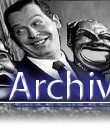 |
 |
 |
 |
 |
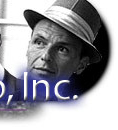 |
Click on the picture of your favorite celebrity to view more information. |
 |
 |
 |
 |
 |
A MATCHLESS LIBRARY TELEVISION ARCHIVE |
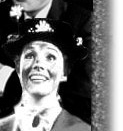 |
|
 |
|
 |
|
 |
|
 |
|
 |
|
 |
|
 |
|
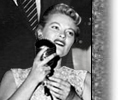 |
|
 |
|
 |
|
 |
|
 |
|
 |
|
 |
|
 |
|
 |
|
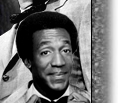 |
|
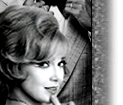 |
|
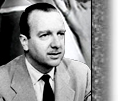 |
|
 |
|
 |
|
 |
|
 |
|
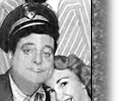 |
|
 |
|
 |
|
 |
|
 |
|
 |
|
 |
|
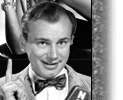 |
|
 |
|
 |
|
 |
|
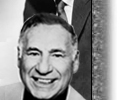 |
|
 |
|
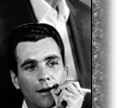 |
|
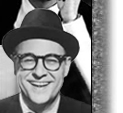 |
|
 |
|
 |
|
 |
|
 |
|
 |
|
 |
|
 |
|
 |
|
 |
|
 |
|
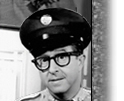 |
|
 |
|
 |
|
 |
|
 |
|
 |
|
 |
|
 |
|
 |
|
 |
|
 |
|
 |
|
 |
|
 |
|
 |
|
 |
|
 |
|
 |
|
 |
|
 |
|
 |
|
 |
|
 |
|
 |
|
 |
|
 |
|
 |
|
 |
|
 |
|
 |
|
 |
|
 |
|
 |
|
 |
|
 |
|
 |
|
 |
|
 |
|
 |
|
 |
|
 |
|
 |
|
 |
|
 |
|
 |
|
 |
|
 |
|
 |
|
 |
|
 |
|
 |
|
 |
|
 |
|
 |
|
 |
|
 |
|
 |
|
 |
|
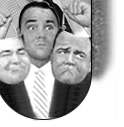 |
|

ARSC/IASA London Conference: Why Collect?
|
A SPEECH GIVEN BY PHIL GRIES AT THE BRITISH LIBRARY IN LONDON ENGLAND ON SEPTEMBER 25, 2001 TO AN AUDIENCE OF AUDIO ARCHIVISTS, MEMBERS OF ARSC (ASSOCIATION FOR RECORDED SOUND COLLECTIONS), AND IASA (INTERNATIONAL ASSOCIATION OF SOUND AND AUDIOVISUAL ARCHIVES). Subject of the conference: "WHY COLLECT?: THE PURPOSE OF AUDIOVISUAL ARCHIVES AND COLLECTIONS." During the week long conference, my invitation to address the conference's central theme provided me the opportunity to address and expound on my archive, revealing its genesis, its 43 years of development, providing personal anecdotes, and playing samples of one-of-a-kind television audio airchecks from ARCHIVAL TELEVISON AUDIO's peerless collection. My central theme was to remind all those in attendance, from around the world, the lasting importance and historical significance of early television audio airchecks - representing the only broadcast record of a "lost," erased, destroyed or never recorded original television program (1946 through the 1970s). Complete collections of television archives I have "rescued," over the years, were also discussed. The following is an edited transcript of that speech and my introduction. HOST: "Our next speaker is Phil Gries, from New York, and representing his archive, ARCHIVAL TELEVISION AUDIO. He started his collection at the age of 15, and he will tell you about his one-of-a-kind television programs which survive today only as audio." PHIL GRIES: "It is a great pleasure for me to be here. I have come from New York, and it's not often that I get a chance to address an audience of really passionate collectors and archivists who deal with sound. Accepting the invitation to speak here at the ARSC/IASA conference at the British Library in London, and realizing the purpose of being here, to address the subject 'Why Collect?: The Purpose Of Audio Visual Archives,' is a pleasure. However, I would like to restructure the theme title to be a little more precise, regarding my archive to 'Why Collect?: The Purpose Of Audio Archives When The Visual No Longer Exists.' Approximately 43 years ago, I began to record reel to reel 1/4" audiotape of the sound coming from my television set. I had a vintage 16 1/2" Andrea 1949 television console, and I took off the back of the set and attached alligator clips to the wire leads to the speaker, and had a phone jack plug placed into the input of my 1958/1959 Webcor Stereophonic 1/4" tape recorder which was a gift to me, from my parents, on my birthday, February 2nd. And, from that time on I really became hooked to audio recording television soundtracks. Today, I believe that I have the largest and most comprehensive TV audio aircheck library in the United States. I have approximately 15,000 hours of material which encompasses approximately 12,000 different broadcasts, and they date back primarily to the 1950s, the 1960s, and the 1970s. We all know that during those first three decades of television broadcasting archiving was kind of an arcane pursuit. Very little was saved, and I began to realize just how little was saved when in 1987, I approached the Museum of Television and Radio inquiring as to what TV holdings existed at that time. It made me more aware of how many broadcasts were not present at the Museum which I had as audio. I realized that my TV soundtracks represented the only broadcast record. Incredibly, more than half of television's first 30 years of live and videotaped television broadcasting, 1947 through 1976, has been lost, has been damaged, has been erased, has been deteriorating, beyond repair. The 12,000 TV audio airchecks in the Archival Television Audio archive encompass every genre. I recorded variety programs, sports, interviews, talk, specials, news, public affairs, and even news bulletins." THE AUDIENCE LISTENS TO THE TV SOUNDTRACK OF DON PARDO'S NATIONAL NBC BULLETIN ANNOUNCING THE ASSASSINATION OF PRESIDENT JOHN F. KENNEDY & A PORTION OF THE LOST 3 MINUTES AND 53 SECONDS OF NBC COVERAGE RELATED TO THE ASSASSINATION BY BILL RYAN, CHET HUNTLEY & FRANK McGEE (NBC TV) November 22, 1963. "If I personally had not audiotaped the first two NBC bulletins, the television bulletins by Don Pardo, and the first 3 minutes and 53 seconds of initial coverage by Bill Ryan, Chet Huntley and Frank McGee, one of the most historic television broadcast moments would have been lost forever! NBC never recorded these first moments and no other TV audio aircheck has ever surfaced. I might add that NBC did record approximately 70 and 1/2 hours of their television coverage subsequent to the first 5 minutes of broadcasting. One of the reasons why they did not record the first initial minutes was due to a technical reason. In those days, in 1963, a television camera had to 'heat up' for a dozen minutes before it became 'active.' So, Don Pardo appeared on TV, not live, seeing him, but with an NBC LOGO CARD on the screen, just the sound, and I just happened to be tuned to NBC TV at the right time, at the right moment with a tape recorder turned on, and I recorded those initial moments. Today, and I know Sam Brylawski would concur, even the granddaddy of television archives, The Library of Congress in Washington D.C., has just a fraction of broadcasts from television's first three decades of broadcasting. I'd like to quote from the Library of Congress' 1989 published reference work, THREE DECADES OF TELEVISION, compiled by Sarah Rouse and Katharine Loughney. 'In television's first decades, programs were generally perceived as ephemeral material. Television was a disposable medium. Television had an image problem in the academic community. It hardly seemed necessary to preserve a medium which was available in huge quantities, popular with the masses, and very prosperous. Furthermore, the quantity of programming aired annually, 23,000 hours, from the four networks alone, made the task of judging the merits of individual programs and series an arduous one. So, it is not surprising that few archives were collecting and preserving TV programs. Through the 1960s, television preservation was an arcane pursuit.' I must credit a number of other individuals, living and deceased, who also recorded the sound from their television set, and whose archives, in part or in whole, have been acquired by me, over the years. On October 8th, 1958, NBC broadcast the premiere of MILTON BERLE STARRING IN THE KRAFT MUSIC HALL. From the Lee Hoffman collection of TV audio recordings, the essence and excellent audio quality of that premiere show survives." THE AUDIENCE LISTENS TO AN EXCERPT FROM THE TV SOUNDTRACK "MILTON BERLE STARRING IN THE KRAFT MUSIC HALL" (NBC-TV ) - October 8, 1958. "I donated this tape to Uncle Miltie, and a few years ago I received a lovely letter of appreciation from him stating that he would be adding this soundtrack to his own archive. A very quick anecdote of how I got this tape. It was among hundreds of other tapes recorded off the air by Lee Hoffman. In 1997 I had gotten a call from The Museum of Television & Radio in New York; they typically do not accept TV audio. They accept kinescopes, videotapes, but not audio only! Because of a relationship I had in the past I was asked by one of the head archivists, Alan Glover, at the Museum of Radio and Television if I was interested in a collection of audio, stored in a California warehouse. The son of the late Lee Hoffman, who had recorded hundreds of reel to reel 1/4" tapes from 1956 thru 1979, needed to disperse this material. I paid a $950 freight charge for the 1000 pound crate to be delivered to my home, not knowing exactly what I would find. When it arrived by truck, I felt like I was in a candy shop. I took a crowbar, and with my 7 year old son, Ethan, we opened the crate. We stared at 1300 reel to reel 7 1/2" audiotapes! A thousand of these tapes were of little interest to me, mostly music LP's transferred to audiotape. However, there were 232 reel to reel tapes which were related to television audio. From the collection of another gentleman, George Vlasto, a former biology professor who audiotaped his television and radio...a lost NBC TV broadcast which aired on July 21st, 1963. This aircheck profiles a 21 year old Cassius Clay, later to rename himself Muhammad Ali, along with his 19 year old brother Rudolph. They are both interviewed by Brian O'Doherty." THE AUDIENCE LISTENS TO AN EXCERPT FROM THE TV SOUNDTRACK "DIALOG" (NBC-TV) - July 21, 1963. "To the best of my knowledge, this is the earliest broadcast record of a sit down interview with a young Cassius Clay and his brother Rudolph. From a youthful Muhammad Ali to an aging Buster Keaton. Listen to this lost broadcast on which Keaton is interviewed, over 40 years ago, on August 10th 1961. I personally audiotaped this TV broadcast which was originally produced and aired by NBC for the series HERE'S HOLLYWOOD. A wonderful moment with Buster Keaton." THE AUDIENCE LISTENS TO AN EXCERPT FROM THE PROGRAM "HERE'S HOLLYWOOD" (NBC-TV) - August 10, 1961. "In TV GUIDE, issue April 13th 1968, it was reported that over a million composite USA hours of television broadcasts, since 1947, have been labeled 'whereabouts unknown.' Even in the late 60's, fabulous 'Specials' were subsequently erased. One in particular which I would like to have you hear, a musical which appeared on NBC TELEVISION on March 19, 1967, Irving Berlin's ANNIE GET YOUR GUN, starring Ethel Merman, who performed in this color videotaped television revival of her original Broadway 1946 production, and a previous revival in 1966, when she performed at Lincoln Center." Only this television broadcast audio track survives. THE AUDIENCE LISTENS TO AN EXCERPT FROM THE PROGRAM "ANNIE GET YOUR GUN" (NBC-TV) - March 9, 1967. "This past May there was an article in many newspapers with the headlines stating, 'Where's Johnny?' Quoting from one of those articles, 'Hidden away behind locked doors recorded on more than 4000 tapes stored in fireproof and earthquake proof rooms, where the temperature stays between 68 and 70 degrees, are more than two decades of laughter, smiles, and double takes. The underground vaults and storage facility is home to the archive of THE TONIGHT SHOW STARRING JOHNNY CARSON, who hosted the show from 1962 to 1992. Almost all of the episodes of the show's last 20 years, believed to be one of the largest single television libraries in the world, are being preserved at this facility.' However, THE TONIGHT SHOW early episodes are lost. As stated in a recent article, and I quote, 'Most of the footage of the first 10 years of the Carson era were accidentally destroyed when NBC used the tapes for other shows. We may have only one dozen TONIGHT SHOWS, and mostly excerpts from those first 10 years of broadcasting.' I have hundreds of them. One of the much cherished archival audio airchecks in my archive is from the very first show. The premiere show aired on October 1, 1962." THE AUDIENCE LISTENS TO AN EXCERPT FROM THE PREMIERE BROADCAST OF "THE TONIGHT SHOW" (NBC-TV) - October 1, 1962. "One anecdote, in particular I have to mention. It's another example of how today there's little awareness and little knowledge as to what I consider is great value regarding these television audio airchecks which represent lost broadcasts...the only broadcast record of an original television program. Most of my archive represents pristine sound quality tracks since most of the archive was originally recorded by direct line and not via microphone. An example of how I have acquired other collections with pristine direct line TV audio recordings occurred about five years ago when an article about me appeared in The New York Daily News (January 1, 1996). Because of the publicity from that article, regarding my archive, I received a phone call from a custodian, Clarence Hall, who mentioned he worked at The Helen Keller Institute for the Blind. He had come across a complete room full of 1/4" reel to reel audiotapes labeled TV audio. He told me that this room was being emptied in one week and the contents were going to be discarded to create space for used clothing donations. This custodian had just read the article about my archive. He called me and wanted to know if I was interested in buying these tapes which he would keep instead of putting them into the dumpster. It turned out to be an unbelievable collection of variety television audio airchecks totaling 850 1/4" reel to reel boxes of tape, containing over 4,300 programs, recorded between 1960 and 1982. I paid $11,000 for these tapes. Through some detective work on my own, I later learned that the man who recorded all of this material, who passed away in 1982 at the age of 67, lived in Floral Park N.Y. and used six reel to reel tape recorders, taping every night, every day, every week, every month, recording variety shows, including THE JIMMY DEAN SHOW, THE DON KNOTTS SHOW, and THE DANNY KAYE SHOW. Many of the variety shows he taped were complete runs of a series. I know that the BBC has Richard Dimbleby's coverage of Sir Winston Churchill's death and funeral, but there are a number of broadcasts aired in the United States which do not fare as well and not having this original coverage available." THE AUDIENCE LISTENS TO THE TV SOUNDTRACK FROM "FRIENDS OF MR. CHURCHILL" (CBS-TV) - January 25, 1965. "One of the most lost broadcast TV genres from the 1950s and 1960s are the daily news broadcasts, local and network. Television airchecks prior to August 5th, 1968 are almost non-existent. I would like to play a brief moment from one of the many thousands of TV audio aircheck news broadcasts contained in my archive." THE AUDIENCE LISTENS TO THE TV SOUNDTRACK FROM "CBS EVENING NEWS WITH WALTER CRONKITE" (CBS-TV) - August 6, 1962 (Reporting on the death of Marilyn Monroe). "In conclusion, there have been so many different individuals in all realms of show business, sports, and politics...people who have approached me. People who have requested certain material not in their own archive. Material which is totally lost. I have given Woody Allen, to date, 26 TV audio airchecks, and I have in turn received letters from him, 17 to date, mostly hand written. There have been many people, who I don't have time to mention, who have been interested in my archive. My hope is that others will contact me. I'm always interested in finding out about other people who have done the same thing in terms of audio recording their TV set, especially from the early years, the 1950s and 1960s. Anyone who knows of such material should please contact me. I would just like to conclude by stating that if it weren't for a handful of recordists who personally recorded television audio, thousands of lost TV shows would be completely lost forever. And when only the audio aircheck remains we still have an opportunity to at least be in touch with our nostalgic past, our memories, the political and social events of our time, our heritage, in a form still revealing and memorable. It is illustrated radio with the visuals left to our own imagination. Now as the 21st century unfolds, most of our early surviving kinescopes and videotapes will be accounted for and circulated. Maybe then, perhaps, inquisitive minds will come to recognize and revere the treasures which remain and which have been overlooked - the audio track links to a bygone era representing the golden and silver age of television. I would be very remiss if I didn't mention a few of the friends and associates of other people who have in the past been passionate about taping their own TV, including David Goldin, Bill Mackie, Steve Tompkin, John Furman, Fred Berney, Don Chichester, Bill Anthony and Vince DiPalma, who co-founded with me and who is the editor of a quarterly publication called SAAR, The Society of Audio Aircheck Recordists. Thank you for your kind attention." __________________________________________________
AN INTERVIEW WITH PHIL GRIES On Wednesday, December 2, 1998, the Society of Audio Aircheck Recordists Newsletter interviewed Phil Gries, the founder of this Society.
|
Top
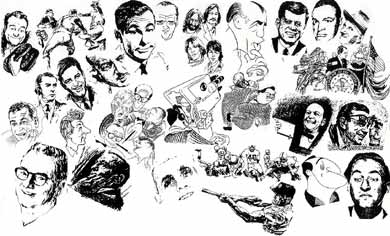
To search for a broadcast, please e nter a
Show Title, Personality, Airdate, Archive ID, Keyword or Phrase into the Search textboxes at the top of the page:
PRESERVING & ARCHIVING THE SOUND OF
LOST & UNOBTAINABLE ORIGINAL TV
(1946 - 1982)
"Preserving & disseminating important TV Audio
Air Checks, the video considered otherwise lost."
-Library of Congress
Vintage Television Audio Broadcasts
22,000 Titles - 20,000 Hours
Home | About us | Order Inquiry | TV Categories | Personality Index | Title Index
Archival Television Audio, Inc.
www.atvaudio.com
209 Sea Cliff Avenue
Sea Cliff, New York 11579
Attention: Phil Gries
|
Founder & Owner Phil Gries Director of Photography www.philgries.com |
"Any Inquiries"
Phone/Fax: (516) 656-5677
Email Us: gries@atvaudio.com
© 2002-2024 Collector's Choice Archival Television Audio, Inc.
All Rights Reserved.

Unique Visitors:
Visitor Counter
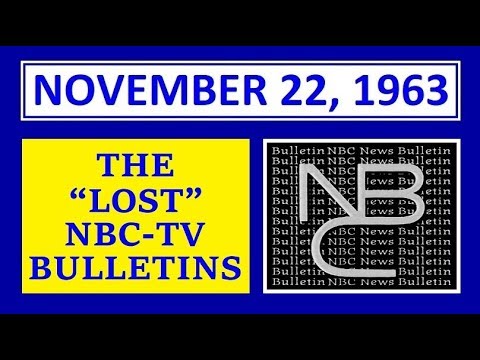
UNIQUE in the WORLD audio air check recordings by 20-year-old Phil Gries, archiving the first, second bulletins & initial NBC TV broadcast coverage of President John F. Kennedy's assassination. Not recorded by NBC or any other resource in the country.
- A&E TV SPECIAL - host Edwin Newman (11-22-1988) introduction - 25th Anniversary of JFK Assassination.
- NBC TV "Lost Don Pardo Bulletins" & Lost first 3:53 TV coverage (Phil Gries unique broadcast audio recording) unable to be video tape recorded or audio tape recorded by NBC.
- Phil Gries telephone interview with Don Pardo (5-14-1998).
- 10 minutes.
LIVE with PHIL GRIES
ARCHIVAL TELEVISION AUDIO - WEBINAR
Each Friday Evening from 7:30 - 8:30PM EST.
 RETRIEVABLE LOST MEMORIES
RETRIEVABLE LOST MEMORIESORDER
Vintage Television Audio Broadcasts
22,000 Titles
20,000 Hours
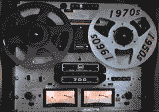
Testimonials
The Senior Moments Radio Broadcast show interviews Phil Gries about his Archival Television Audio archive and his restored documentary film, "Harlem School 1970"

Glen Cove Senior Center
January 23, 2018
 Phil Gries' recordings
Phil Gries' recordingsof vintage sounds
never grow old.

Hear Phil Gries on

Hear Phil Gries
and Joe Franklin
on Bloomberg Radio
(April 28, 2012)

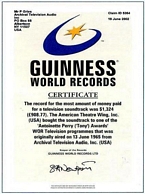
Home
Contact Us
ORDER INQUIRY
Hear Phil Gries on
National Public Radio
Archive Profile

ALL THINGS CONSIDERED
"Raising Ali"
(May 22, 2015)
Hear Phil Gries
on Sports Talk:
August 25, 2019
June 26, 2016
August 9, 2015


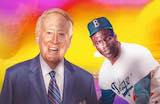

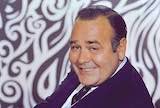
 Archive
ArchiveSearch Library
TV Categories
Personality Index
Title Index
ARSC Journal Article Publication: Lost TV Programs (1946-1972)

Hear Phil Gries presentations at ARSC (Association for Recorded Sound Collections) 2001, 2008, 2009, 2010, 2011, 2014.
Audio Samples

(Audio files may take 20 seconds or more to load)
1960's TV
Audio Player
103 Broadcast Samplers
AudioAndText™
Content
(Browser needs to
allow Flash content)
Content Collections
JFK Assassination
Coverage
NPR Walter Cronkite Essays
Civil Rights Movement (1956-1968)
Space Exploration (1956-1972)
Vietnam War
(1961-1975)
[854 Entries]
Company Information
About Us
Descriptions
Access
Fees
Archive
TIME-LINE
Accreditation
Master Materials
Research
Copyrights
Restricted Archive Titles
Catalogs
Related Materials
TV History
Lost Television
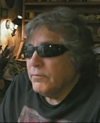
Jose Feliciano, at 70, listening to his FIRST TV variety show appearance (Al Hirt: FANFARE), telecast on July 17, 1965, when he was 19 years old.
TV Audio:
Rare & Valued
When TV Variety
Was King
This Anniversary Day
In Television History
ARSC/IASA London Conference: Why Collect?

News 12 Long Island
Live Television Profile:
Archival Television Audio, Inc
CAPTURED LIVE: CULTURES OF TELEVISION RECORDING AND STORAGE, 1945-1975

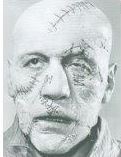
NBC MATINEE THEATER
FRANKENSTEIN
NBC TV - Feb. 5, 1957
8:23 min. excerpt
Phil Gries TV Audio Archive
Profile Segment
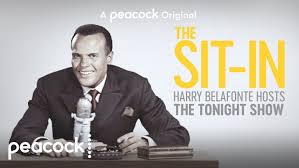
Harry Belafonte Hosts
The Tonight Show
5:21 min. excerpt
Password: Phil
(Case Sensitive)